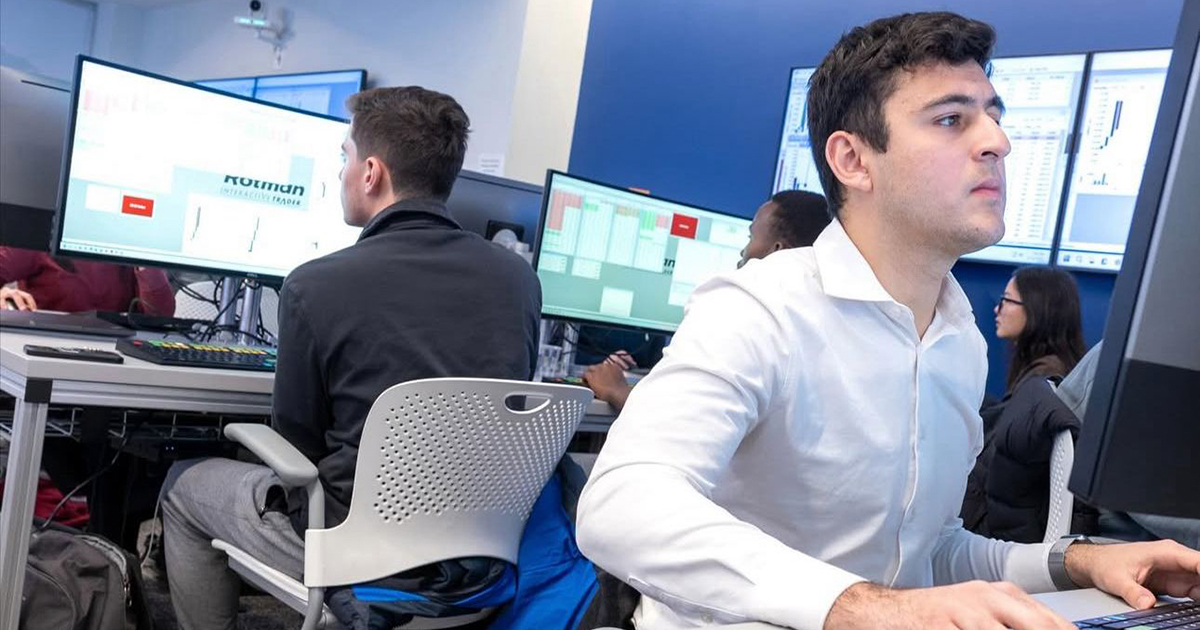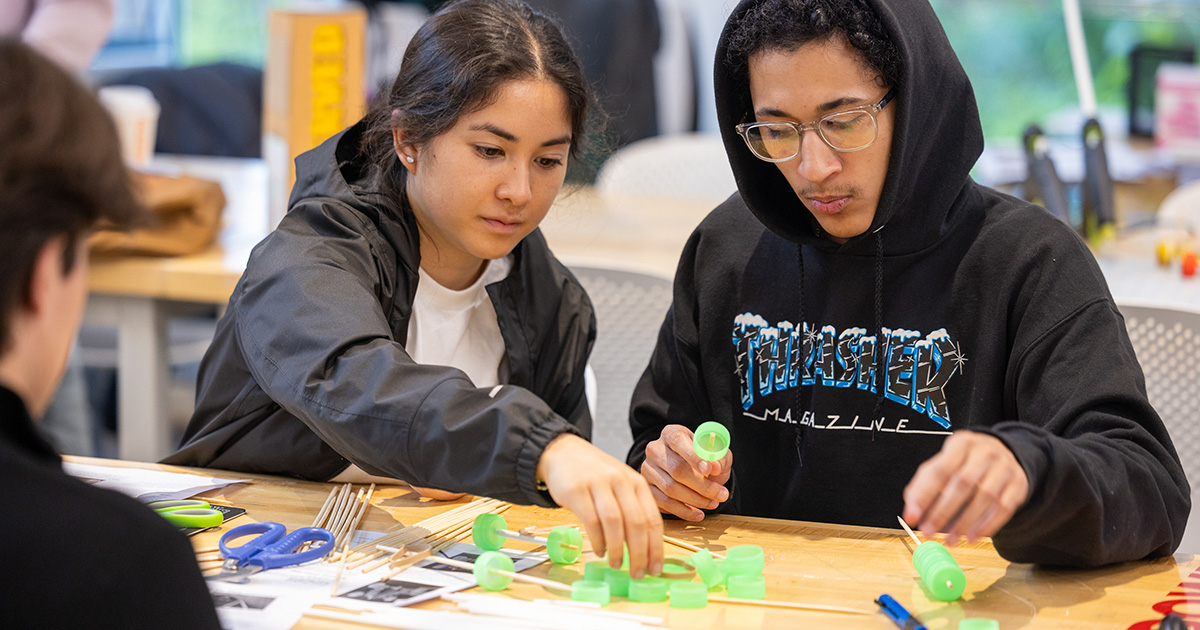Babson WIN Tulsa Draws Inspiration from Historic Roots
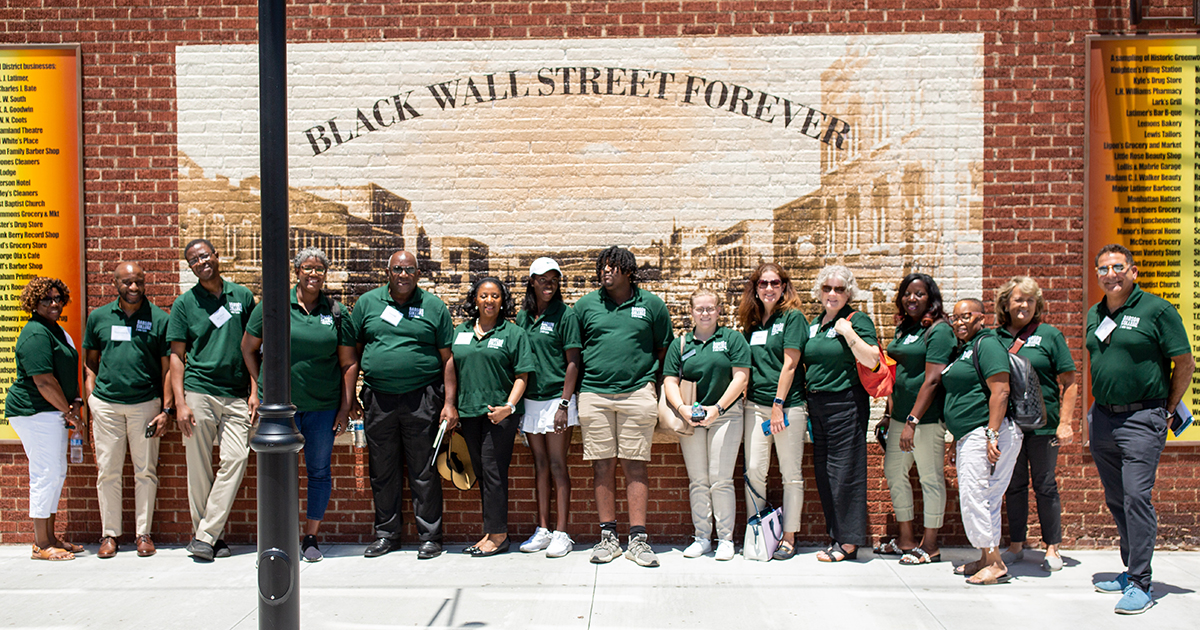
A group of staff, faculty, and other community members said a tour of Babson College’s new Women Innovating Now (WIN)®, located in the historic Greenwood District of Tulsa, Oklahoma, left them inspired, humbled, and motivated about the new partnership with community leaders.
Babson WIN Tulsa, a program dedicated to boosting women entrepreneurs and local economies, is located inside the Greenwood Women’s Business Center (WBC). The building is one of the last structures left standing after the 1921 Tulsa Race Massacre, the most destructive racial violence in U.S. history. Before the attack, the area was a thriving economic hub for the Black community that was often referred to as “Black Wall Street.”
“The experience on the ground in Tulsa was one of profound grief, introspection, and ultimately inspiration,” said Natalie Joseph, director of Babson’s Multicultural and Identity Programs. “I am inspired to partner with colleagues from the local colleges to share our students’ innovation and talents to help existing businesses grow and scale.”
The group got a chance to learn more about the history of Tulsa’s Greenwood District in a tour that highlighted the geography of the neighborhood, showed markers of the 1921 massacre, explained the events leading up to the attack and detailed the ongoing push to rebuild.
Vini Onyemah, professor of sales and marketing at Babson, said the guided tour was one of the most impactful parts of the trip.
“It was extraordinary to thread on the pain, cry, fear, and blood of the massacred and survivors,” Onyemah said. “What a privilege to see, feel, and learn.”
Extending an Entrepreneurial Legacy
The Greenwood WBC, where Babson WIN Tulsa is located, opened in the heart of the Greenwood District last year as part of an effort to continue the area’s entrepreneurial legacy. Babson WIN Tulsa is opening in partnership with the GWBC, Greenwood Chamber of Commerce, U.S. Black Chambers Inc. (USBC), the U.S. Small Business Administration (SBA), and local Tulsa universities—Langston University (a historically Black college and university), Oklahoma State University, Tulsa Community College, and Tulsa Tech.
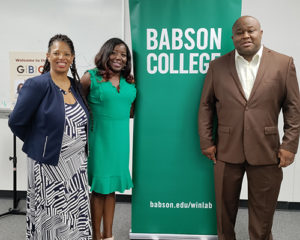
From left: Alisa Joseph, director of programs for the USBC; Shakenna Willams ’94, executive director of CWEL; and Freeman Culver III, president and CEO of the Greenwood Chamber of Commerce at the official opening of Babson WIN Tulsa.
Shakenna Willams ’94, executive director of Babson’s Center for Women’s Entrepreneurial Leadership (CWEL), highlighted the College’s growth and commitment to boosting women entrepreneurs and local economies during the trip last month.
Williams toured the new WIN location along with Babson’s visiting group that included CWEL board members and Gerald Watson ’76, the founding chair of the Babson Black Alumni Alliance.
“I am honored to be here for the opening of CWEL Tulsa, which is an extension of Babson’s entrepreneurial leadership programming designed specifically to meet the needs of women business owners here in Tulsa, Oklahoma, and the Southwest region,” Williams said.
“We hope to provide Tulsa with access to the resources that have helped more than 6,500 women nationwide grow their businesses and transform their communities for nearly two decades.”
The program focuses on helping women entrepreneurs in the area launch successful businesses while creating economic and social impact. The new site will offer programming from Babson’s CWEL program that includes workshops, networking events, accelerators, access to capital, and business development.
Expanding Entrepreneurial Opportunities
The first WIN initiative was launched in 2013 by Babson’s CWEL on the Wellesley campus, and WIN Lab expanded to Miami in 2016.
Sadie Burton-Goss, the chief inclusive excellence officer at Babson, was one of several from the college community to make the trip to Tulsa and experience the Greenwood District.
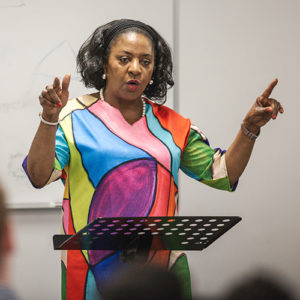
Sadie Burton-Goss, Babson’s director of diversity and inclusion, spoke at the event in Tulsa last month.
“Babson’s vision for the future of women’s entrepreneurial leadership will encourage women worldwide to engage in entrepreneurial activity and to contribute their leadership skills to the growth of a global economy where they can realize their full potential as business leaders,” Burton-Goss said. “The ultimate goal of this work is to redefine what it means to be an entrepreneur, executive leader, and businessperson so that ‘entrepreneurial’ no longer has gendered connotations.”
The WIN is made possible through a grant given to Babson College from FedEx Corp. The Greenwood WBC is funded in part through a cooperative agreement with the SBA. The many collaborations created through the WIN Lab project is one of the big takeaways from the trip, said Michele Bernier, associate director of programs at the KMH Center of Health Innovation and Entrepreneurship at Babson.
“Besides the trip’s purpose and impact being meaningful to the community of Tulsa and to Babson, it’s meaningful to me on a personal level,” Bernier said. “With all the negativity and polarization in the country, we are doing something positive and acting as a catalyst for meaningful change.”
Onyemah agreed, saying, “Destiny appears to be calling on Babson to help put back green, a sign of vitality and growth, in Tulsa.”
Posted in Community

